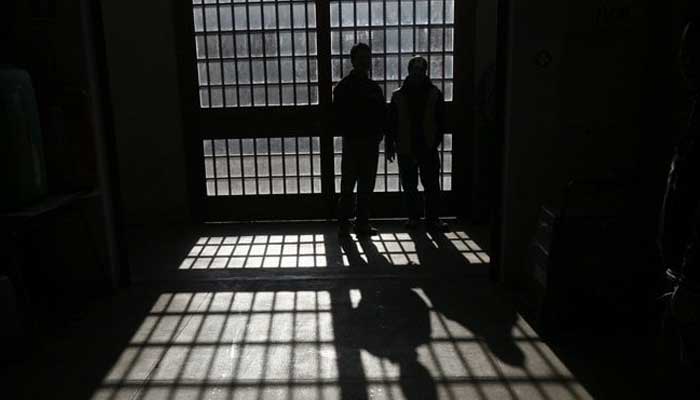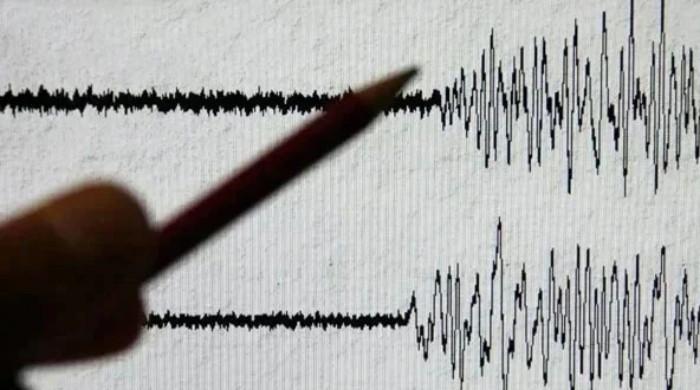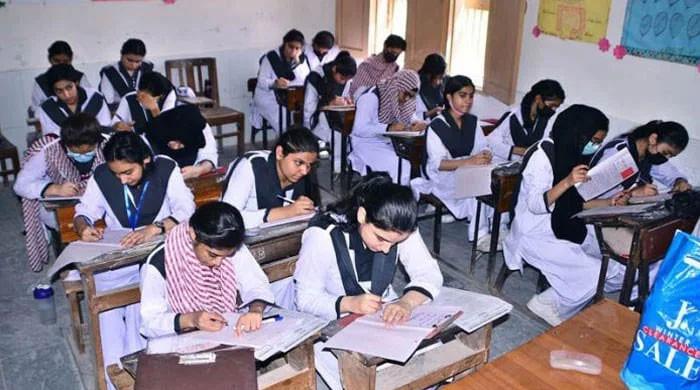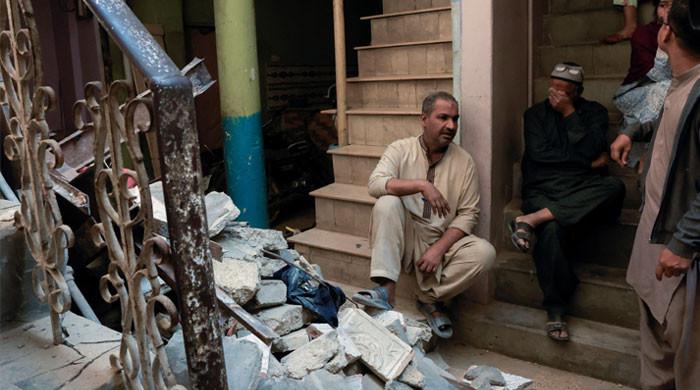Pakistan needs urgent and comprehensive prison reforms: HRW
Human Rights Watch report sheds light on healthcare woes of prisoners locked up in Pakistan's jails
March 29, 2023

- Report claims prisoners are systematically deprived of adequate health care.
- "Thousands at risk of disease and death," report states.
- HRW says "outdated and discriminatory bail laws" severely overcrowd jails.
Prisoners in Pakistan are systematically deprived of adequate health care by authorities, which has left thousands at the risk of disease and death across jails in the country, Human Rights Watch (HRW) claimed in its report released on Wednesday.
The 55-page report titled A Nightmare for Everyone: The Health Care Crisis in Pakistan’s Prisons has documented rampant inadequacies in the country's prison health care, while also mentioning the consequences for 88,000 people who account for the total prison population.
The report cited severe overcrowding in Pakistani jails which is a result of the country's "outdated and discriminatory bail laws", as most inmates are "yet to be tried or convicted".
"Pakistan has one of the world’s most overcrowded prison systems, with cells designed for a maximum of three people holding up to 15. Severe overcrowding has compounded existing health care deficiencies, leaving inmates vulnerable to communicable diseases and unable to get medicines and treatment for even basic health needs, as well as emergencies," the Human Rights Watch mentioned.
The human rights watchdog's Associate Asia Director Patricia Gossman said that the country's prison system requires "urgent and systemic reforms"
"Successive governments have acknowledged the problem and done nothing to address the most critical needs to overhaul bail laws, allocate adequate resources, and curb corruption in the system," Gossman said.
The organisation has documented accounts of 54 people which include former prisoners in Islamabad, Sindh, and Punjab, women and juveniles, counsels of detainees and convicted inmates, advocacy organisations focused on prisoner rights, and prison health officials.
The report found that Pakistan's "dysfunctional criminal justice system" is the principle cause of overcrowding in prisons.
"Most inmates are under trial and have yet to be convicted. The majority facing criminal trials are poor and lack access to legal aid. A lack of sentencing guidelines and the courts’ aversion to alternative noncustodial sentences even for minor offenses significantly contributes to overcrowding," the watchdog stated.
HRW also maintained the healthcare crisis in Pakistan's prisons reflects deeper failures when it comes to accessing health care in the country, which has, most recently, been exacerbated by a deteriorating economic crisis.
"Poor health care intersects with a range of other rights abuses against prisoners, including torture and mistreatment, and is a key symptom of a broken judicial system. Corruption among prison officials and impunity for abusive conduct contribute to serious human rights abuses," the report added.
The report also highlighted that influential and rich prisoners, sometimes, utilise the privilege to serve out their sentences outside the prison such as in private medical facilities, while the poor inmates are forced to pay "bribes" merely to acquire medication for pain relief.
"Colonial-era laws enable the government and other powerful people to interfere in police and prison operations, sometimes directing officials to grant favors to allies and harass opponents," the HRW said in its report.
The organisation added that substandard infrastructure and corruption have left healthcare services in jails across the country "vastly overstretched".
"Most prison hospitals lack adequate budgets for medical staff, essential equipment, and sufficient ambulances. Almost all prisoners interviewed described unhealthy and inadequate food, dirty water, and unhygienic conditions," the report mentioned.
It further highlighted that for prisoners their only option to often drink water was through the tap — which is unhealth for drinking purposes following its contents being high in arsenic.
The organisation found that women were the most vulnerable inmates in Pakistan's jails, as they suffer from an added layer of "patriarchal societal attitudes, lack of independent financial resources, and abandonment by families", which contribute to their difficulties as prisoners.
"Women in the criminal justice system routinely experience prejudice, discrimination, and abuse, and for these reasons face greater difficulties accessing health care," HRW stated.
The report also shed light on the plight of prisoners with disabilities mentioning their presence “at great risk of abuse, discrimination, and mistreatment”.
Even though psychosocial disabilities are highly prevalent among prisoners, Pakistan’s jails do not provide access to even basic support for mental health issues.
“The prison system lacks mental health professionals, and prison authorities tend to view any report of a mental health condition with suspicion. Psychological assessments for new prisoners are either perfunctory or not done at all,” the report brought to the fore.
The global human rights organisation urged the country’s provincial and federal governments to “urgently adopt measures to bring health care in its jails and prisons in line with international standards, such as the Nelson Mandela Rules”.
It underscored that the lack of allocation of adequate resources by successive governments and their failure to monitor and ensure efficient utilisation of these resources has significantly contributed to the deteriorated condition of jails.
The report lauded the efforts of Sindh’s administration for enacting prison rules in accordance with international standards; however, it lamented about rules not being enforced in the province’s jails.
In its report, the HRW has also suggested reforms which include a change in bail laws, expediting the process of trial, and dealing with overcrowding by prioritising noncustodial sentences.
“Pakistan needs urgent and comprehensive prison reform, with a particular focus on the rights of women, children, and other at-risk prisoners,” Gossman stated, insisting that basic health care is a fundamental right for everyone, including those behind the bars.











